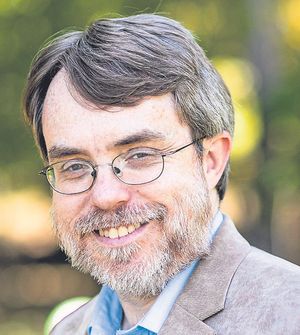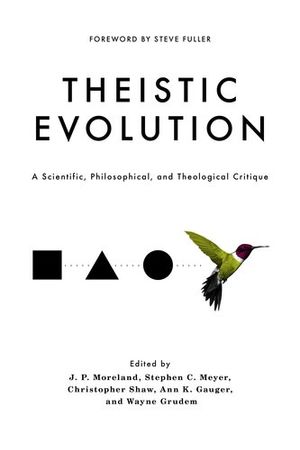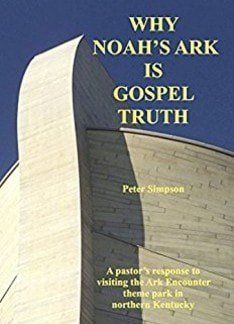Young-age creationism is not new, despite efforts by its critics to explain it away as a modern theological aberration, derived from Seventh-day Adventism or American fundamentalism.
All the foundational ideas of young-age creationism, including a recent creation, death through sin and a global Flood, can be traced back millennia.
It is true that young-age creationism was eclipsed in the eighteenth and nineteenth centuries, with much of the professing church accepting an old earth and, in the decades after Darwin, the theory of evolution.
But the publication of John Whitcomb and Henry Morris’ The Genesis Flood in 1961 sparked a worldwide revival of young-age creationism, which continues to this day in a proliferation of creationist movements and organisations across the globe.
Worldwide creationist revival
One of the earliest groups to be founded was the Creation Research Society (CRS). Voting members of the society must have postgraduate degrees in science, and membership has grown from ten at its founding in 1963, to 639 in 2015.
CRS has published the CRS quarterly continuously since 1964 and holds an annual conference. It also maintains a field station in Chino Valley, Arizona, and continues to promote creationist research. One of its most recent projects is iDINO, which studied the preservation of soft tissues in dinosaur fossils and the implications for geological time scales.
The Institute for Creation Research (ICR) originated in 1972 as a creation studies division of Christian Heritage College (now San Diego Christian College) in Santee, California, but became a fully autonomous organisation in 1980.
Its first president was Henry Morris and it issues a monthly periodical called Acts & Facts. ICR staff members have led field expeditions to search for the ark and a major multidisciplinary effort to reinterpret the results of conventional radiometric dating methods.
Between 1981 and 2010, ICR operated a graduate school, offering masters level degrees in biology, geology, astrophysics and science education. Today it has a School of Biblical Apologetics, offering degrees in Christian education. ICR speakers, notably the late Dr Duane Gish, participated in many debates with evolutionists on university campuses in the US and overseas.
Answers in Genesis
The creationist organisation with the greatest ‘reach’ today is Answers in Genesis (AiG), which began as a ministry of Ken Ham in Australia. In 1986 Ken Ham moved to the US to work with Films for Christ and subsequently ICR.
Upon leaving ICR in 1993, he established an AiG branch in the US. Differences in philosophy and operation eventually led the US and Australian ministries to go separate ways, with Carl Wieland heading the rebranded Creation Ministries International (CMI) in Australia.
CMI publishes the widely read Creation magazine and the more technical Journal of creation. AiG has its own popular magazine, Answers, and an online technical publication, Answers research journal. AiG has continued to attract headlines with the opening of its Creation Museum in 2007 and the Ark Encounter in 2016.
Contrary to the perception that creationism is an almost exclusively American phenomenon, the oldest extant creationist group is located here in Britain. The Creation Science Movement (CSM), formerly the Evolution Protest Movement (EPM), was established in 1932.
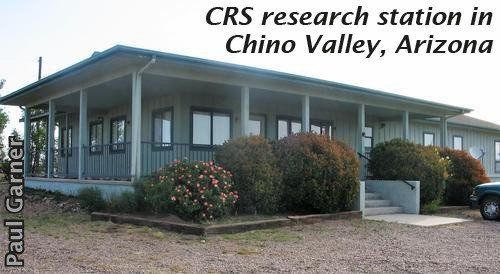
Some founding members of EPM accepted an old earth, but the organisation later moved to a fully fledged young-age position. CSM continues to publish a regular newsletter, pamphlets and books.
In 1976 the Biblical Creation Society (BCS) was formed as an initiative of theological students associated with the Inter-Varsity Fellowship, dissatisfied with the theistic evolution position. The first chairman of BCS was Nigel Cameron, who has since gone on to leadership in the US in the field of bioethics.
BCS published a journal called Biblical creation, relaunched in 1987 as Origins. In 2002, Biblical Creation Ministries (BCM) was established as an offshoot of BCS, in order to support my own full-time speaking ministry.
Another UK-based organisation was Genesis Agendum (GA), which originated in 1994 with the vision for a creationist museum in South Kensington. While this proved too ambitious, an online museum was established under the name ‘The world around us’. Most recently, BCS has united with BCM and GA to form Biblical Creation Trust (BCT).
Many other creationist organisations are active across Europe and worldwide, with two of the largest being the Korea Association for Creation Research and Wort und Wissen (‘Word and knowledge’) in Germany.
Intelligent design
A parallel development has been the rise of the intelligent design (ID) movement. ID is not a creationist movement per se, nor even an exclusively Christian one. ID makes no biblical assumptions about the age of the earth, a global flood or even the existence of God. Instead, it focuses on challenging the assumption of naturalism in scientific enquiry and developing empirical tools for detecting design in natural systems.
One of the earliest ID publications was Dean Kenyon and Percival Davis’ book Of pandas and people (1989), which caused considerable controversy in the US when it was used to supplement high school biology texts.
Another seminal publication was Darwin on trial (1991), in which the lawyer Philip Johnson argued that naturalism was an intellectual straightjacket that ruled out consideration of the design hypothesis a priori.
ID has since become a large and influential movement, with a leading role played by advocacy organisations such as the Discovery Institute, based in Seattle, Washington.
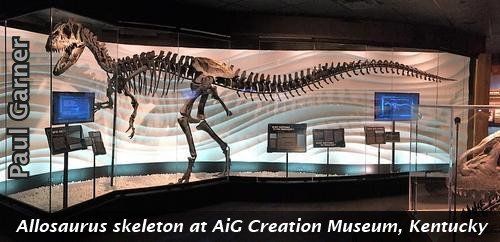
Prominent ID advocates include William Dembski, whose research has focused on the mathematical detection of design; Stephen Meyer, who argues that the information encoded by the DNA molecule requires an intelligent cause; and Michael Behe, who contends that molecular machines such as the bacterial flagellum are irreducibly complex and could not have been formed by neo-Darwinian mechanisms.
Evaluation
Young-age creationism has clearly blossomed over the last half century. It now has a host of intellectual leaders, popular opinion shapers, cheerleaders and supporters. There is a burgeoning literature and numerous organisations.
However, it is important to note that creationism is not monolithic. In some respects, it is not a single movement at all, but rather a network of movements and alliances, interconnected and with many areas of mutual interest, but representing different constituencies, approaches and areas of focus.
In some ways, diversity brings strength to a movement, but it also inevitably gives rise to disagreements about approach and strategy that require wisdom and brotherly understanding.
Creationism has matured over the years. Much of the movement has been focused on opposition to evolution, and this seems unlikely to change. However, some members of the movement see the need to move beyond anti-evolutionism to build a positive vision of creationist science.
For example, the International Conference on Creationism (ICC) has been held every 4 or 5 years since 1986 and emphasises the need to develop the creation model. One of the most exciting initiatives has been the establishment of professional societies for creation biologists and geologists. The Creation Biology Society (CBS) and Creation Geology Society (CGS) hold a joint annual conference and publish the online Journal of creation theology and science.
Real progress has been made in developing new scientific theories, such as catastrophic plate tectonics as a framework for understanding the global Flood and baraminology as a method to identify created kinds. But much more remains to be done, not only to test and refine these ideas, but to advance our efforts in other under-developed disciplines, such as palaeontology and cosmology.
Challenges
Creationism also faces many challenges, not least in training the next generation to take on the mantle. Some creationist organisations have seen their supporter base decline or are faced with an ageing membership. Will we invest time and money in nurturing our young people, or will we allow our movement to wither through neglect?
Another question is whether we are content to remain anti-evolution ‘gadflies’, criticising evolutionary ideas from the sidelines, or whether we will embrace the more ambitious task of developing a positive creation model to explain the data. It is not always clear where the funding for such creationist research will come from in the future.

The cultural context has been transformed in the last 50 years. Here in Britain, and to a growing extent in the US, secularism has extended its sphere of influence in government and the institutions.
Since creationism is a provocative challenge to secularism, it has inevitably attracted an increasing amount of negative media coverage, and efforts to prevent creationists having a voice in the world of education have been stepped up. Well funded organisations have been founded to oppose creationism, such as the National Center for Science Education (NCSE) in the US.
The leadership of the evangelical scene continues to be dominated by theistic evolution and new organisations promoting this perspective have been founded, such as the Faraday Institute in the UK and BioLogos in the US.
Old-earth creationist organisations have also appeared, the most prominent being Reasons to Believe (RTB), founded in 1986 by Hugh Ross, a Canadian born astrophysicist. However, RTB, based in Los Angeles, California, has had a greater impact in the US than here in the UK.
The future
Finally, how should we view the role of the intelligent design movement? ID has undoubtedly had an extraordinary impact in the public arena, although it lost some of its impetus as a result of being on the losing side of the infamous Dover trial in 2005.
There are signs that it may be rediscovering some of its earlier dynamism, and it is to be hoped that a fruitful research programme based on ID will continue to be developed. Some creationists have regarded ID with suspicion, but perhaps it is best to think of ID as an ally serving a different purpose.
ID helps people over the credibility barrier by challenging naturalism and opening up the possibility of design, but we want to do more than simply point people to some unspecified ‘designer’. Creationism has the apologetic advantage of putting the focus on the historical reality of the Bible and on the central doctrines of Christianity, including the gospel.
So if this was a school report, our assessment might be: ‘Encouraging start. But be prepared for the significant challenges that lie ahead!’
In particular, those of us actively involved in creationism need to apply ourselves with urgency to developing longer term strategies that will ensure creationism is not a side issue, but will retake its historic place as mainstream Christianity. Then the church will be better equipped to meet the increasing apologetic challenges of our day.
Paul Garner MSc, FGS is a full-time researcher and lecturer for the Biblical Creation Trust (http://www.biblicalcreationtrust.org). He has an MSc in geoscience from University College London, where he specialised in palaeobiology. He is a Fellow of the Geological Society of London. His first book, The New Creationism: building scientific theories on a biblical foundation, was published by Evangelical Press in 2009. He is also a director of Evangelical Times.
Further reading:
Garner, Paul A., 2011, ‘The Genesis Flood: 50 years on’, Origins 55:4-10.
Morris, Henry M., 1993, History of modern creationism, second edition; Institute for Creation Research, California.
Numbers, Ronald L., 2006, The Creationists: from scientific creationism to Intelligent Design, expanded edition; Harvard University Press, Massachusetts.
Tyler, David J., 1995, ‘A look back over 20 years of BCS’, Origins 20:10-13.
Websites of creationist organisations mentioned:
Answers in Genesis: answersingenesis.org;
Biblical Creation Trust: biblicalcreationtrust.org;
Creation Biology Society: creationbiology.org;
Creation Ministries International: creation.com;
Creation Research Society: creationresearch.org;
Creation Science Movement: csm.org.uk;
Institute for Creation Research: icr.org;
International Conference on Creationism: creationicc.org;
Korea Association for Creation Research: creation.or.kr;
Wort und Wissen: wort-und-wissen.de



